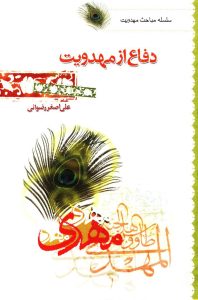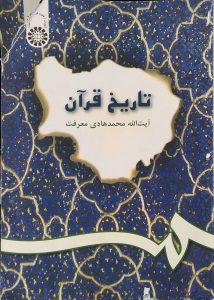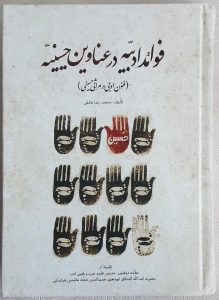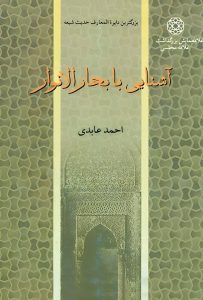Difāʿ az Mahdawiyyat by ʿAlī Aṣghar Riḍvānī is a concise Persian book that defends the belief in the Mahdī. It refutes objections from Orientalists and Muslim intellectuals, providing evidence from Islamic sources. Recommended for those supporting Mahdism.
Islamic book Archives - Page 2 of 3 - Tolou International Institute
This book examines Islamic and religious teachings from the perspective of Imam Mahdi (a). The author uses hadiths and narrations narrated from Imam Mahdi (a) to address topics such as monotheism, imamate, prophethood, resurrection, jurisprudential rulings, ethics, sin, and prayer.
Tārīkh-i Qurʾān by Muḥammad Hādī Maʿrifat is a comprehensive book on Qurʾānic studies. It covers the revelation, compilation, recitations, and addresses claims of distortion. With valuable insights and authoritative scholarship, this book is a valuable resource for understanding the history of the Qurʾān.
Farhangnāmi-yi Mahdaviyyat is a Persian dictionary by Khudā Murād Salīmīān, providing comprehensive insights into Imam Mahdī (a) and various aspects of his life, occultation, reappearance, and uprising. It covers over 2500 ḥadīths and is organized alphabetically. The dictionary serves as a valuable academic resource for understanding Mahdism.
This is a volume on correct pronunciation of major proper names (of people, places, events, and customs) in the Husayni literature.
This book review discusses “Ghazweh-ye Uhud dar Partov-e Quran” (The Battle of Uhud in the Light of the Quran) by Allamah Ayatollah Muhammad-Reza Jafari. The book evaluates the Battle of Uhud based on Quranic accounts, challenging interpretations by certain Sunni historians. It covers the battle’s background, major events, aftermath, portrayal of hypocrites, and lessons derived from the Quranic narrative.
“Ashenayi ba Bihar al-anwar” is a book by Ahmad Abedi that provides a concise introduction to Allama Muhammad-Baqir Majlisi’s life and his significant work, the Bihar al-anwar. The book discusses Majlisi’s contributions as an interpretuer of hadiths and explores the authenticity and sources of the Bihar al-anwar. It suggests that the book deserves to be republished as a college textbook and an academic edition for university students.
This is a volume on certain aspects of the Holy Quran in relation to Imam al-Husayn.
This book provides a survey of the meanings of the the proper names mentioned in the Holy Quran
This is a single-volume index to the late Allama Sayyid Muḥammad Ḥusayn Ṭabāṭabāʼī’s Quran exegesis, al-Mīzān fī Tafsīr al-Qurʼān.








![Muḥammad Khazāʼilī, Aʻlām-i Qurʼān [ Proper Names in the Quran]](https://tolouii.com/wp-content/uploads/2023/05/4015f252ae46485c8930bc37ef99101c-206x300.jpg)

